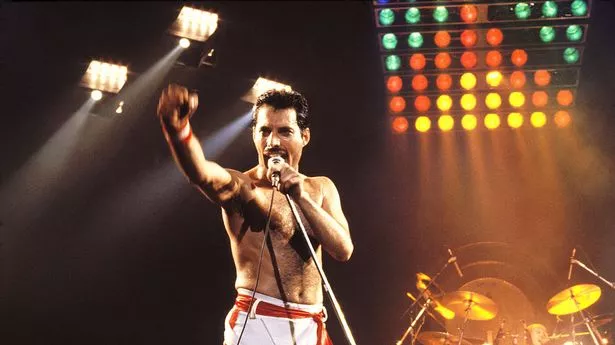We’ve all listened to that one song on repeat over and over again because it makes us feel happy.
Sometimes it’s a new song we’ve heard on Spotify, other times it’s just an absolute classic.
That being said, listening to music has the power to stir everyone’s emotions, whether you’re old or young.
Dutch neuroscientist Jacob Jolij has researched ‘feel good’ music, and has come up with a mathematical formula as to why they make us feel fuzzy inside.
In his research, he created a database of the most popular feel good songs from the last 50 years.
He then applied statistical methods to sum up characteristics for each and find links between each of the songs.
The project was commissioned by British consumer electronics brand Alba, who asked 2,013 Brits whether they used music to uplift their mood.
They also asked which feel-good songs they preferred from different decades to help come up with a mathematical formula.
Jolij came up with the Feel Good Index (FGI) which includes a sum of positive references in each song, from lyrics, to tempo, beats per minute and its key.
He found that the higher a song's FGI, the more ‘feel-good’ it was predicted to be, using the sum (FGI: Feel Good Song, BPM: Beats Per Minute, K: Key)
Songs with a faster tempo of 150 beats per minute and a major third musical key are said to make us feel a positive emotion.
But what was the number one feel good song according to Jolij’s FGI sum?
It was ‘Don’t Stop Me Now’ by Queen of course, which is a little faster than the average song and also in a major key.
To top it all off, the lyrics are very positive - it doesn’t get much more positive than the 1979 hit.
Other feel good songs according to the study include:
“Dancing Queen” - Abba
“Good Vibrations” - The Beach Boys
“Uptown Girl” - Billy Joel
“Eye of the Tiger” - Survivor
“I’m a Believer” - The Monkees
“Girls Just Wanna Have Fun” - Cyndi Lauper
“Livin’ on a Prayer” - Bon Jovi
“I Will Survive” - Gloria Gaynor
“Walking on Sunshine” - Katrina & The Waves
In terms of the most feel good songs for each decade, Pharrell William’s ‘Happy’ takes first prize for 2010s, followed by ‘Dancing In The Moonlight’ by Toploader for the 2000s.
So, next time you open your happy Spotify playlist on a dreary Monday, remember that there's some hidden mathematics behind it.
